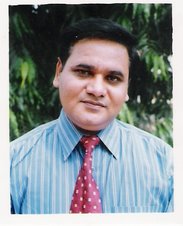Ashok K Pandey
Early childhood is recognized as a distinct stage of learning which lays the foundation for future shaping up of the child. This is the age that determines the quality of life the child is going to lead. This is also the age that determines the experiences that the child will have as a citizen and role she will play in the society.
The vision of pre primary education, therefore, should clearly be based on the principles of developing those skills, competencies, values, and creativity that will give the child its identity, its unique personality and self esteem. It should ensure a rightful place for the child in the ever changing society with all its variations, demands, and challenges. Such lofty ideals of childhood education will also call for our ability as educators to arouse in them a craving for acquisition and exploration of new knowledge. The teachers, therefore, will have to create such an environment around the child as is conducive to achieving these goals.
The Philosophical Moorings
The early philosophers who developed childhood educational goals and contributed to insight into their world have advocated that we should allow children to be active authors of their own development. Swami Vivekanand reminded us that as teachers we have to help children manifest their innate talents lying within. Jean Piaget insisted that we should create surroundings for exploration and experimentation which make children little scientists of their own world. Rudolf Steiner, another thinker believed in the unity of spirit, soul, and body. The job of good education according to him is to restore a balance between thinking, willing, and feeling. Nursery and kindergarten children learn through imitation and doing. Fantasizing and playing is considered to be the most important work of young children. The educational focus therefore should be on bodily exploration, construction and creativity, through oral language, story, and song.
Theory and Curriculum
The principles of curriculum designing for early childhood education are based on the needs, interests, and modes of learning of young children. Early experimentations in the aftermath of world wars in this area were focused on creating a just and peaceful society. In today’s context, justice, peace, fair play, sharing, tolerance and overall development of the human being still hold to be the paramount universal values. It will be necessary for us to tune our curriculum and programs in such a way that these values are imbued in them from the early stages. As teachers, we should be prepared to devote time with them generously and develop love , compassion and respect for them and their individual differences. Our proficiency should allow us an in-depth presentation and review of our teaching-learning material and assessment programs for them.
The child’s natural intelligence (Maria Montessory), their relationship (Loris Malaguzzi) with others and the kind of environment that we construct around them plays an important role in learning. A teacher has to respond to these constructs by playing multiple roles in the classrooms and outside. In one scheme of things she has to be a performer (The Waldorf) of various roles seeking harmony. In another she has to play the role of an unobtrusive director (Maria Montessory) in the classroom ensuring a calm and productive atmosphere. In yet another role she has to be an artful balancing factor(Reggio) between engaging them and drawing the attention of the children.
School Community and Parents
We must not forget the role of a golden triangle supported by the child, the teacher and the parent at its three vertices. No early childhood education program can succeed without a successful partnership with the parents. The experiences of the children in the school ought to receive a ratification at home. If our goal is to achieve harmony and integration with the natural environment, the school community as a whole including parents have to work together to help our children work around their experiences for their intellectual, emotional and social development.
The Way Forward
My understanding is that any system of child education has to derive its strength from the latest researches in this important area. Every school of thought and particularly the pioneering researches of Piaget have emphasized the role of play in the life of a child. It is for this reason that one should strive to exploit the natural and innate interest in learning of a child by creating varied and stimulating environments. A long but enjoyable journey of self discovery begins with the role play in early years. The creative impulses, resolves to surmount the odds and maiden encounters with grit and adventure are experienced in the environs that we create for them in our play schools.
Our social and economic structures are changing rapidly. The need for a quality universalisation of early childhood education is felt more intensely than ever before. We are a diverse and multilingual society. Our family bonds and values are cherished. We have lacked inclusivity and gender sensitivity in our education for long. Fortunately both the national and the individual aspirations are on the rise. It is good news for our children and for all those engaged in this noble mission.
Email: ashokpdy@gmail.com The writer is Principal, Ahlcon International School, New Delhi
skip to main |
skip to sidebar


No comments:
Post a Comment